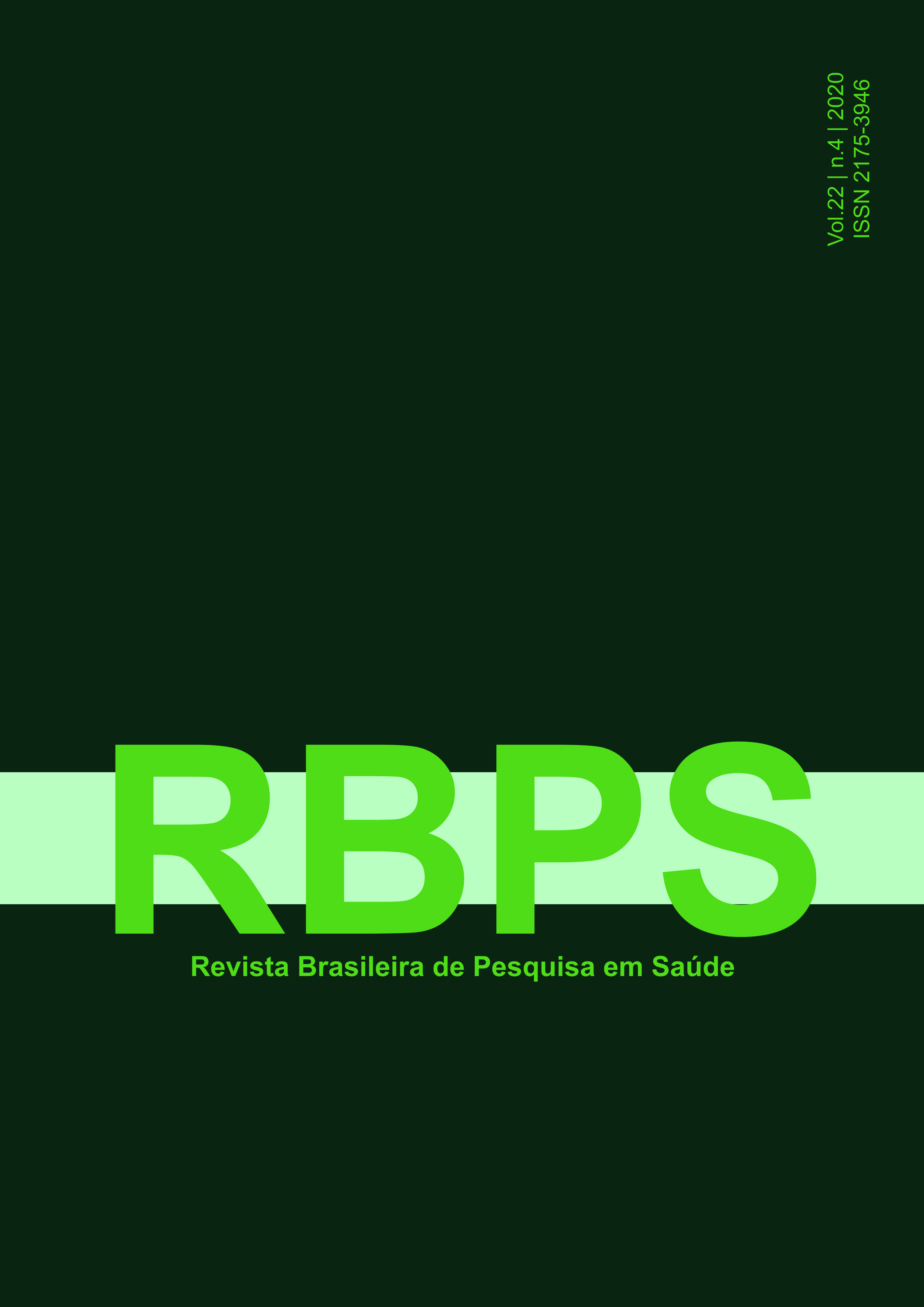Reliability and factor analysis of a questionnaire about diabetic patients’ access to consultations with endocrinologists
DOI:
https://doi.org/10.47456/rbps.v22i4.32914Keywords:
Accessibility to Health Services, Questionnaire, Reproducibility of Results, Factor Analysis, Diabetes MellitusAbstract
Introduction: Access to health services has been addressed in discussions about health care systems; the literature describes several dimensions of this construct. Objective: Evaluating the reliability and configural structure of a questionnaire about the access of diabetic patients to consultations with endocrinologists at SUS, based on availability, financial viability, and acceptability dimensions. Methods: A questionnaire was developed to assess the access of diabetic patients to consultations with endocrinologists at SUS, based on availability, financial viability, and acceptability dimensions. Telephone interviews were conducted with 472 diabetic patients; interviews were scheduled by the Regulation System at SUS, in Espírito Santo State. Test-retest reproducibility analyses, and the assessment of internal consistency by Cronbach’s alpha, were performed to determine the reliability of the questionnaire. Configural structure and theoretical-empirical congruence were determined based on principal component analysis with orthogonal varimax rotation. Results: Most responses have shown substantial and almost perfect agreement in the three assessed dimensions. One item was excluded from the availability dimension because it presented moderate stability (k = 0.41, 95% CI = 0.08 - 0.73). In the end, the initial instrument, which comprised 25 questions, was reduced to 15 questions covering the following dimensions: availability (Cronbach’s α 0.699), financial viability (Cronbach’s 0.526), and acceptability (Cronbach’s 0.568). Resulting components have shown high factor loads (> 0.3) and acceptable reliability (> 0.5) for most items. Conclusion: Reliability and configural structure have indicated the feasibility of measuring the measurement properties of the questionnaire and suggested its applicability in populations similar to the herein investigated one.
Downloads
Downloads
Published
How to Cite
Issue
Section
License
Copyright (c) 2021 Revista Brasileira de Pesquisa em Saúde/Brazilian Journal of Health Research

This work is licensed under a Creative Commons Attribution-NonCommercial-NoDerivatives 4.0 International License.
Authors and reviewers must disclose any financial, professional, or personal conflicts of interest that could influence the results or interpretations of the work. This information will be treated confidentially and disclosed only as necessary to ensure transparency and impartiality in the publication process.
Copyright
RBPS adheres to the CC-BY-NC 4.0 license, meaning authors retain copyright of their work submitted to the journal.
- Originality Declaration: Authors must declare that their submission is original, has not been previously published, and is not under review elsewhere.
- Publication Rights: Upon submission, authors grant RBPS the exclusive right of first publication, subject to peer review.
- Additional Agreements: Authors may enter into non-exclusive agreements for the distribution of the RBPS-published version (e.g., in institutional repositories or as book chapters), provided the original authorship and publication by RBPS are acknowledged.
Authors are encouraged to share their work online (e.g., institutional repositories or personal websites) after initial publication in RBPS, with appropriate citation of authorship and original publication.
Under the CC-BY-NC 4.0 license, readers have the rights to:
- Share: Copy and redistribute the material in any medium or format.
- Adapt: Remix, transform, and build upon the material.
These rights cannot be revoked, provided the following terms are met:
- Attribution: Proper credit must be given, a link to the license provided, and any changes clearly indicated.
- Non-Commercial: The material cannot be used for commercial purposes.
- No Additional Restrictions: No legal or technological measures may be applied to restrict others from doing anything the license permits.

























